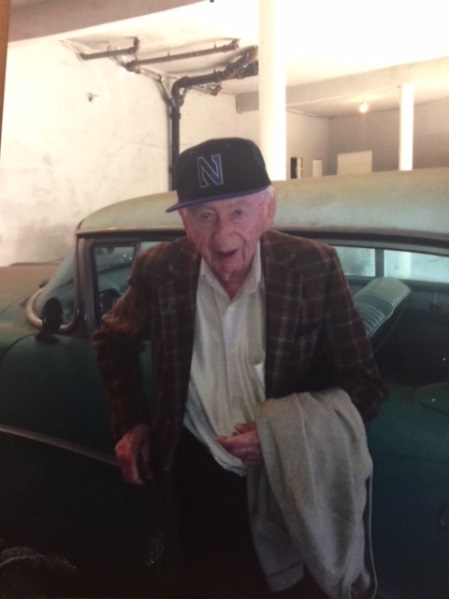 Dr. Wilk’s Legacy
Dr. Wilk’s Legacy
On September 9, 2017, in Fargo, N.D., in a plot next to the graves of his relatives Herman and Henrietta Wilk who had welcomed him as a refugee and given him a family, Dr. Immanuel J. Wilk was buried with military honors.
Dr. Wilk set up three charitable funds through his estate to provide permanent funding for causes he was passionate about throughout his lifetime.
“Perhaps it was the caring and generosity of people who helped him early in his life that inspired his desire to give back. Perhaps it was simply his nature. Whatever the reason, Dr. Wilk’s legacy will live on as a result of the gifts he left behind,” said Eric Wilkie, Executive Director of the FM Area Foundation.
Three new legacy funds were established—the Immanuel Kant Endowment Fund I, Immanuel Kant Endowment Fund II and the Immanuel Kant Music Fund. These funds established in April of 2018 through Dr. Immanuel J. Wilk’s revocable living trust will benefit the Temple Beth El endowment fund, as well as graduate students in the chemistry departments at NDSU and UCLA, and the music departments at NDSU, Northwestern University and UCLA.
About Dr. Immanuel J. Wilk
Dr. Wilk was born in Gerlitz, Germany in 1920, the only child of Morris and Rose (Klein) Wilk. After a happy childhood and early adolescence, his long life’s journey began in 1933 when the Nazis came to power and began their persecution of Jews. His father, a lawyer and a notary for the government, lost his job and the Wilk family moved to Memel, at that time a territory of Lithuania with a large German population. By 1939, the Germans were preparing to annex Memel, and Dr. Wilk’s parents realized that there was no future there for a Jewish boy. They appealed to their relative, Herman Wilk, who lived in Fargo, N.D., to sponsor their son who left Memel in March, 1939, just six days before the Nazis occupied it. After a two month stay in England awaiting his visa, he arrived in the United States. His parents fled further into Lithuania and were murdered in the Shoah.
Once in Fargo, he enrolled in the North Dakota State University, graduating in 1942 with a B.S. in Chemistry. He then enlisted in the US Army, serving in the 103rd Infantry Division, Signal Company as a T/4 specialist, moving with his unit through Europe into Germany and Austria. In 1945 in Innsbruck with the occupation forces, he was in charge of the local post office, the telephone and telegraph facilities. While there, he wrote a memoir, “Memories of the Last Weeks,” a chronicle of the troop movements which he had just experienced. Honorably discharged in 1946, he returned to the States to pursue graduate studies. He received his M.A. in 1948 in Organic Chemistry from Northwestern University and his Ph.D. in Physical-Organic Chemistry from UCLA in 1954. He had several years of teaching and working in industry, including California Polytechnic and Stanford University, Abbot Laboratories and Aerojet Corporation.
In 1963, Wilk started his own business, Science Services. His major concerns were with water and air pollution, including acid deposition; he testified before committees of the California Legislature on pollution and safety problems.
A longtime member of the American Chemical Society, he was affiliated with the following Divisions: Chemical Education, Environmental Chemistry, Agricultural and Food Chemistry. He was a charter member of the Division of Chemical Health and Safety, served on its Executive Committee and received its Outstanding Service Award.
For many years he organized wine tastings for the annual meetings. His interest in wine quality led him to investigate the effect of oxygen on aging in wines and to become a member of the American Society for Enology and Viticulture.
Perhaps his greatest strength was his capacity for sustained friendship. The neighbors he met in Fargo remained lifelong friends. He stayed in touch with his buddies from the 103rd Infantry Division, often traveling across the US to attend significant events in their lives. He wrote letters frequently, and when the technology became available, he Skyped with family and friends around the world.
Thank you, Dr. Wilk, for the legacy you have left.
